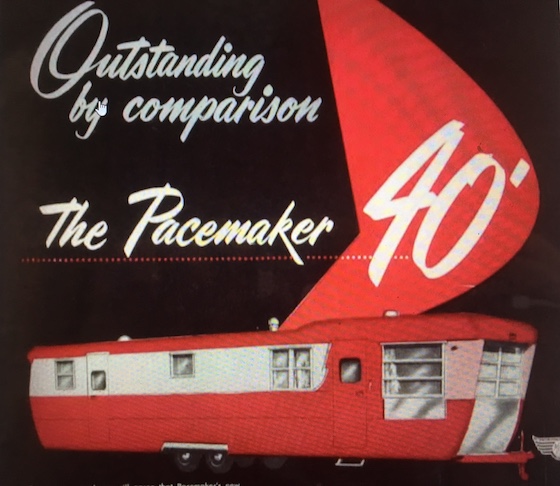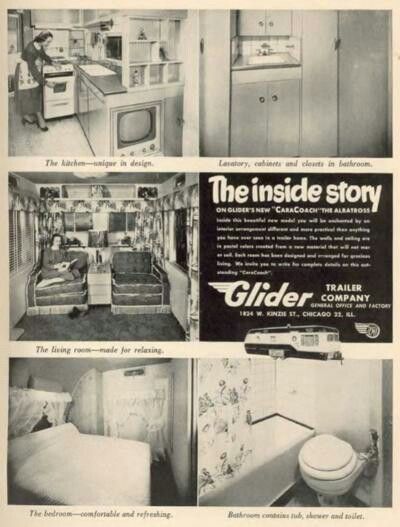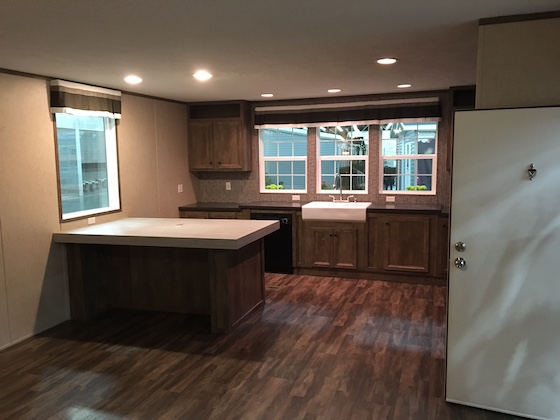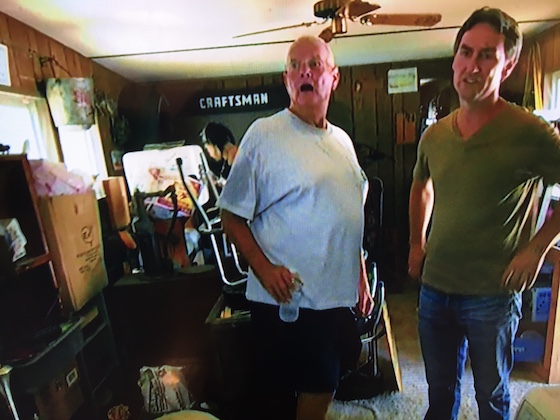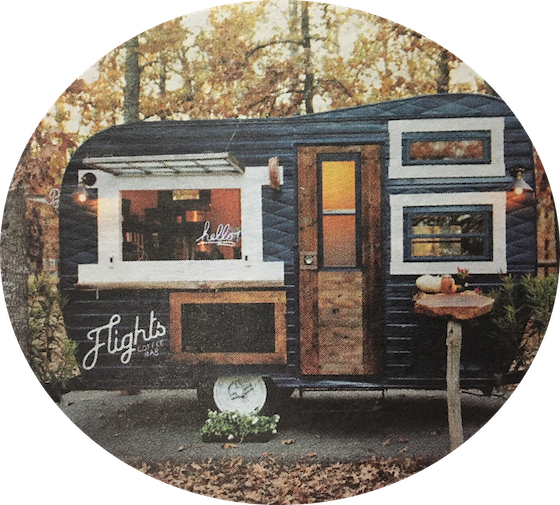Back in the early days of the industry, the biggest mobile homes were around 8’ x 40’. These were the showpieces at that time, as reflected in the ad shown above. Even J. Paul Getty’s Spartan – widely considered the prototype of the mobile home from the 1950s – was 8’ x 40’. These early parks hold some of the finest locations in the U.S., as they were built at a time when cities still allowed new construction and often pre-date the cities that formed around them. Frequently the park buyer will encounter situations in which they find a property with a terrific location coupled with tiny lots. So the question is: how do you address and evaluate small lots?
Is the density putting you at risk for Fire Marshal intervention?
Although mobile home parks benefit from the property rights of legal non-conforming “grandfathered’ status – in which they have no obligation to obey any ordinance enacted after the date of lawful construction – they are not exempt from the power of the Fire Marshal. The Fire Marshal has the ability to end any practice that is creating danger to the community at large. This can sometimes manifest itself in the Fire Marshal requiring moving over or removal of certain homes that are too close to others. Any time that the homes in the park are around 10’ or less in distance from each other, you should try to have the Fire Marshal walk the property and get their feedback.
The width is often more important than the length
Not all small lots are created equal. If the mobile home lot cannot hold a 14’ wide home, then you have a really significant problem, as manufacturers no longer normally produce 8’, 10’ or 12’ wide homes, and they are equally rare on the used home market. So you need to pay attention to the width of the lot as much – or even more – than the length.
Can the lot hold a two-bedroom home?
You’ve never known misery until you have tried to sell or rent a one-bedroom mobile home. While two-bedroom models fly off the shelf, one-bedrooms languish. Even elderly residents who live alone have no interest in one-bedroom units. It seems that everyone wants that second bedroom for a guest room, hobby room, or simply a little extra space. If your lot will not hold a two-bedroom mobile home, then it’s too small. That size is normally around 46’ or longer in depth to qualify for a two-bedroom model. Lots that will only hold a one-bedroom mobile home will typically need to be combined with neighboring lots to allow for bigger homes, and you need to allow that possibility when counting the number of usable vacant lots in the park you are buying.
Is there demand for RVs?
Another option for small lots is the use of RVs. But before you assume that’s the solution, you need to verify that there is demand for RV lots in the market. To attain this data, you need to drive your competitors – including stand-alone RV parks – and see how full they are. Talk to RV suppliers (sales lots, RV repair, propane sales) and get their opinions. But remember that, even if there is demand for RVs, they are not as valuable a resident as a mobile home, as they move frequently and are not as attractive to banks or appraisers.
Can your budget accept the reduction of lots if you combine several into one?
When you are working with small lots, you need to realize that filling these vacant lots is often a game of strategy like playing chess. Every action has a reaction, and you have to ensure that you are making the right moves to maximize the number of homes you can fit on the property. The most common options are to combine two lots side-by-side and install a small double-wide, or to combine two lots end-to-end and put in a 76’ three-bedroom home. These strategies, obviously, reduce your available vacant lots by 50% and, as a result, the maximum amount of potential revenue these vacant lots represent.
The potential complications of combining lots together
Just because you have two lots adjoining does not mean that you can use them as one unit. Issues such as topography and utility easements might mean that the lots cannot be combined. There can also be utility issues when combining smaller lots, such as the fact that old lots may need a total re-work of the electrical, water or sewer system. If you are planning on combining small lots together, the time to attack is during due diligence and get the factual information of any holdups.
Have you considered the impact on occupied lots and not just vacant ones?
Many buyers make a mistake and only focus on the impact of small lots on the vacant lots, without thinking about the occupied lots, as well. Remember that any occupied lot could go vacant in the future as a result of a fire or a resident moving their home. While these happen rarely, you need to have a Plan B for every lot in the park. Make sure that vacant and occupied lots have the ability to hold two-bedroom homes. There is the classic case of a large portfolio owner two decades ago that bought a park in a great location in Plano, Texas, but with very small lots. To upgrade the property, they removed the old homes and brought in new ones. While it made the park look much better, nobody was tracking the fact that every new home required two lots. When they got done they were horrified that the park’s total occupancy was half of what was originally budgeted – the park manager had never bothered to alert the corporate office of this obvious occurrence until it was too late.
Is it a lender hurdle?
Even if you get comfortable with your small lots, remember that the lender and appraiser may not be as forgiving. Talk to the lender on the front end and make sure that high density is allowable. We typically don’t see pushback until the density reaches nearly 20 units per acre, but any park with smaller lots might be at risk of a negative assessment. Be prepared for that and have your explanation ready for the lender of how you are planning to manage around this issue.
Conclusion
Some of the best mobile home parks in the U.S. have small lots, which is a direct result of their age. Parks from the 1950’s and early 1960s enjoy phenomenal locations, so you cannot look at these tremendous properties if you are not willing to address the concept of small lots. As long as you do proper due diligence, there’s no reason you cannot buy and succeed with a park with small lots.

